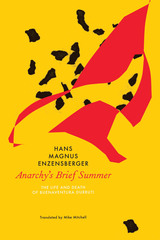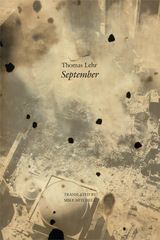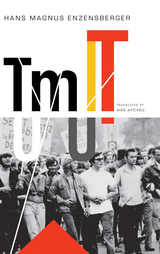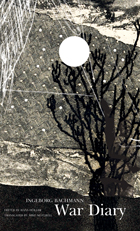5 books about Mitchell, Mike

Anarchy’s Brief Summer
The Life and Death of Buenaventura Durruti
Hans Magnus Enzensberger
Seagull Books, 2018
A unique portrait of a revolutionary movement that is largely unknown outside Spain.
Northern Spain is the only part of Western Europe where anarchism played a significant role in the political life of the twentieth century. Enjoying wide-ranging support among both the urban and rural working class, its importance peaked during its “brief summer”—the civil war between the Republic and General Franco’s Falangists, during which anarchists even participated in the government of Catalonia.
Anarchy’s Brief Summer brings anarchism to life by focusing on the charismatic leader Buenaventura Durruti (1896–1936), who became a key figure in the Spanish Civil War after a militant and adventurous youth. The basis of the book is a compilation of texts: personal testimony, interviews with survivors, contemporary documents, memoirs, and academic assessments. They are all linked by Enzenberger’s own assessment in a series of glosses—a literary form that is somewhere between retelling and reconstruction—with the contradiction between fiction and fact reflecting the political contradictions of the Spanish Revolution.
Northern Spain is the only part of Western Europe where anarchism played a significant role in the political life of the twentieth century. Enjoying wide-ranging support among both the urban and rural working class, its importance peaked during its “brief summer”—the civil war between the Republic and General Franco’s Falangists, during which anarchists even participated in the government of Catalonia.
Anarchy’s Brief Summer brings anarchism to life by focusing on the charismatic leader Buenaventura Durruti (1896–1936), who became a key figure in the Spanish Civil War after a militant and adventurous youth. The basis of the book is a compilation of texts: personal testimony, interviews with survivors, contemporary documents, memoirs, and academic assessments. They are all linked by Enzenberger’s own assessment in a series of glosses—a literary form that is somewhere between retelling and reconstruction—with the contradiction between fiction and fact reflecting the political contradictions of the Spanish Revolution.
[more]

Gone But Not Forgotten
My Favourite Flops and Other Projects that Came to Nothing
Hans Magnus Enzensberger
Seagull Books, 2022
One of Germany’s greatest living writers offers up an analysis (and samples) of his failed projects.
“My dear fellow artists, whether writers, actors, painters, film-makers, singers, sculptors, or composers, why are you so reluctant to talk about your minor or major failures?” With that question, Hans Magnus Enzensberger—the most senior among Germany’s great writers—begins his amusing ruminations on his favorite projects that never saw the light of day. There is enlightenment in every embarrassing episode, he argues, and while artists tend to forget their successes quickly, the memory of a project that came to nothing stays in the mind for years, if not decades. Triumphs hold no lessons for us, but fiascos can extend our understanding, giving insight into the conditions of production, conventions, and practices of the industries concerned, and helping novices to assess the snares and minefields in the industry of their choice. What’s more, Enzensberger argues, flops have a therapeutic effect: They can cure, or at least alleviate, the vocational illnesses of authors, be it the loss of control or megalomania. In Gone but Not Forgotten, Enzensberger looks back at his uncompleted experiments not just in the world of books but also in cinema, theater, opera, and journal publishing, and shares with us a “store of ideas” teeming with sketches of still-possible projects. He also reflects on the likely reasons for these big and small defeats. Interspersed among his ruminations are excerpts from those experiments, giving readers a taste of what we missed. Together, the pieces in this volume build a remarkable picture of a versatile genius’s range of work over more than half a century and make us reflect on the very nature of success and failure by which we measure our lives.
“My dear fellow artists, whether writers, actors, painters, film-makers, singers, sculptors, or composers, why are you so reluctant to talk about your minor or major failures?” With that question, Hans Magnus Enzensberger—the most senior among Germany’s great writers—begins his amusing ruminations on his favorite projects that never saw the light of day. There is enlightenment in every embarrassing episode, he argues, and while artists tend to forget their successes quickly, the memory of a project that came to nothing stays in the mind for years, if not decades. Triumphs hold no lessons for us, but fiascos can extend our understanding, giving insight into the conditions of production, conventions, and practices of the industries concerned, and helping novices to assess the snares and minefields in the industry of their choice. What’s more, Enzensberger argues, flops have a therapeutic effect: They can cure, or at least alleviate, the vocational illnesses of authors, be it the loss of control or megalomania. In Gone but Not Forgotten, Enzensberger looks back at his uncompleted experiments not just in the world of books but also in cinema, theater, opera, and journal publishing, and shares with us a “store of ideas” teeming with sketches of still-possible projects. He also reflects on the likely reasons for these big and small defeats. Interspersed among his ruminations are excerpts from those experiments, giving readers a taste of what we missed. Together, the pieces in this volume build a remarkable picture of a versatile genius’s range of work over more than half a century and make us reflect on the very nature of success and failure by which we measure our lives.
[more]

September
Mirage
Thomas Lehr
Seagull Books, 2013
Two fathers with two daughters: Martin, professor of German, writes but is studying Earth Sciences at MIT; Tariq, a doctor in Baghdad and Muna, is studying the archaeology of a region that is seen as the cradle of civilization. These two parallel relationships in two very different parts of the world expose the human similarities beneath cultural differences. In Thomas Lehr’s moving and realistic novel, the similarities between these men become a similarity of suffering as well. Martin’s daughter dies with her mother in the World Trade Center on September 11, 2001, and though Tariq survives three wars and Saddam Hussein’s regime intact, his family does not—in the last days of the conflict, his daughter is raped, her lover is murdered, and she sees her sister and mother die in a bomb attack.
Out of these tragedies that almost seem to define the first decade of our century, Lehr has fashioned a richly woven, multilayered tapestry that not only explores the human side but brings out the cultural, historical, social, and political context within which the tragedies occur. The alternating interior monologues of the four main characters engage the reader in language which reaches an unforgettable poetic intensity.
[more]

Tumult
Hans Magnus Enzensberger
Seagull Books, 2016
A collection of writings based on Enzensberger’s personal experience as a left-wing sympathizer during the 1960s.
Hans Magnus Enzensberger, widely regarded as Germany’s greatest living poet, was already well known in the 1960s, the tempestuous decade of which Tumult is an autobiographical record. Derived from old papers, notes, jottings, photos, and letters that the poet stumbled upon years later in his attic, the volume is not so much about the man, but rather the many places he visited and people whom he met on his travels through the Soviet Union and Cuba during the 1960s. The book is made up of four long-form pieces written from 1963 to 1970, each episode concluding with a poem and postscript written in 2014. Translated by Mike Mitchell, the book is a lively and deftly written travelogue offering a glimpse into the history of leftist thought. Dedicated to “those who disappeared,” Tumult is a document of that which remains one of humanity’s headiest times.
Hans Magnus Enzensberger, widely regarded as Germany’s greatest living poet, was already well known in the 1960s, the tempestuous decade of which Tumult is an autobiographical record. Derived from old papers, notes, jottings, photos, and letters that the poet stumbled upon years later in his attic, the volume is not so much about the man, but rather the many places he visited and people whom he met on his travels through the Soviet Union and Cuba during the 1960s. The book is made up of four long-form pieces written from 1963 to 1970, each episode concluding with a poem and postscript written in 2014. Translated by Mike Mitchell, the book is a lively and deftly written travelogue offering a glimpse into the history of leftist thought. Dedicated to “those who disappeared,” Tumult is a document of that which remains one of humanity’s headiest times.
[more]

War Diary
Ingeborg Bachmann
Seagull Books, 2011
Austrian writer Ingeborg Bachmann (1926–73) is recognized as one of the most important novelists, poets, and playwrights of postwar German literature. As befitting such a versatile writer, her War Diary is not a day-by-day journal but a series of sketches, depicting the last months of World War II and the first year of the subsequent British occupation of Austria. These articulate and powerful entries—all the more remarkable taking into account Bachmann’s young age at the time—reveal the eighteen-year-old’s hatred of both war and Nazism as she avoids the fanatics’ determination to “defend Klagenfurt to the last man and the last woman.”
The British occupation leads to her incredible meeting with a British officer, Jack Hamesh, a Jew who had originally fled Vienna for England in 1938. He is astonished to find in Austria a young girl who has read banned authors such as Mann, Schnitzler, and Hofmannsthal. Their relationship is captured here in the emotional and moving letters Hamesh writes to Bachmann when he travels to Israel in 1946. In his correspondence, he describes how in his new home of Israel, he still suffers from the rootlessness affecting so many of those who lost parents, family, friends, and homes in the war.
War Diary provides unusual insight into the formation of Bachmann as a writer and will be cherished by the many fans of her work. But it is also a poignant glimpse into life in Austria in the immediate aftermath of the war, and the reflections of both Bachmann and Hamesh speak to a significant and larger story beyond their personal experiences.
Praise for the German Edition
“A minor sensation that will make literary history. Thanks to the excellent critical commentary, we gain a sense of a period in history and in Bachmann’s life that reached deep into her later work. . . . What makes these diary entries so special is . . . the detail of the resistance described, the exhilaration of unexpected peace, the joy of freedom.”—Die Zeit
[more]
READERS
Browse our collection.
PUBLISHERS
See BiblioVault's publisher services.
STUDENT SERVICES
Files for college accessibility offices.
UChicago Accessibility Resources
home | accessibility | search | about | contact us
BiblioVault ® 2001 - 2024
The University of Chicago Press









